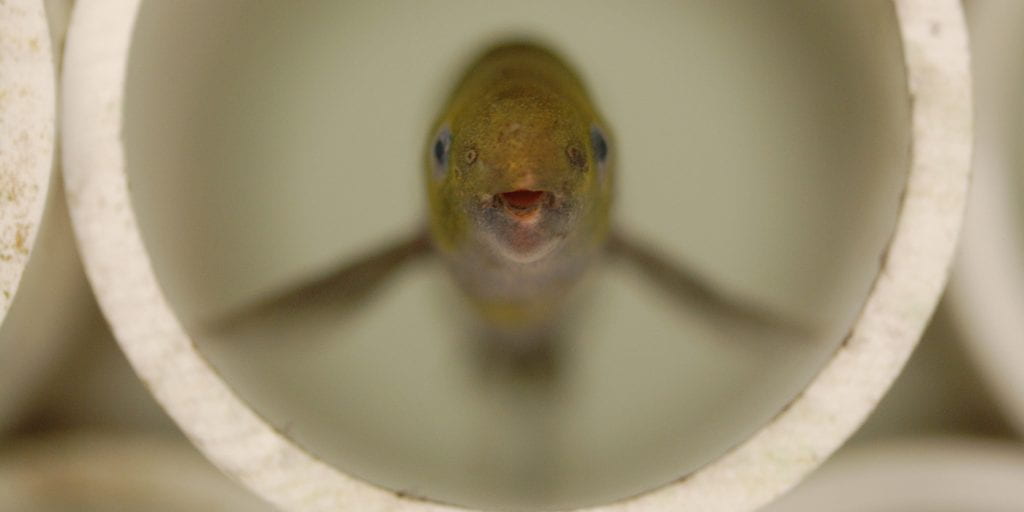American writer and humorist Mark Twain, a master of language and noted lecturer, once offered, “The right word may be effective, but no word was ever as effective as a rightly timed pause.”
Electric fish and today’s TED talk speakers take a page from Twain’s playbook. They pause before sharing something particularly meaningful. Pauses also prime the sensory systems to receive new and important information, according to research from Washington University in St. Louis.

Carlson
“There is an increased response in listeners to words — or in this case, electrical pulses — that happens right after a pause,” said Bruce Carlson, professor of biology in Arts & Sciences and corresponding author of the study published May 26 in Current Biology. “Fish are basically doing the same thing we do to communicate effectively.”
Beyond discovering interesting parallels between human language and electric communication in fish, the research reveals an underlying mechanism for how pauses allow neurons in the midbrain to recover from stimulation.
Carlson and collaborators, including first author Tsunehiko Kohashi, formerly a postdoctoral research associate at Washington University, conducted their study with electric fish called mormyrids. These fish use weak electric discharges, or pulses, to locate prey and to communicate with one another.
The scientists tracked the banter between fish housed under different conditions. They observed that electric fish that were alone in their tanks tend to hum along without stopping very much, producing fewer and shorter pauses in electric output than fish housed in pairs. What’s more, fish tended to produce high frequency bursts of pulses right after they paused.
The scientists then tried an experiment where they inserted artificial pauses into ongoing communication between two fish. They found that the fish receiving a pause — the listeners — increased their own rates of electric signaling just after the artificially inserted pauses. This result indicates that pauses were meaningful to the listeners.
Other researchers have studied the behavioral significance of pauses in human speech. Human listeners tend to recognize words better after pauses, and effective speakers tend to insert pauses right before something that they want to have a significant impact.
